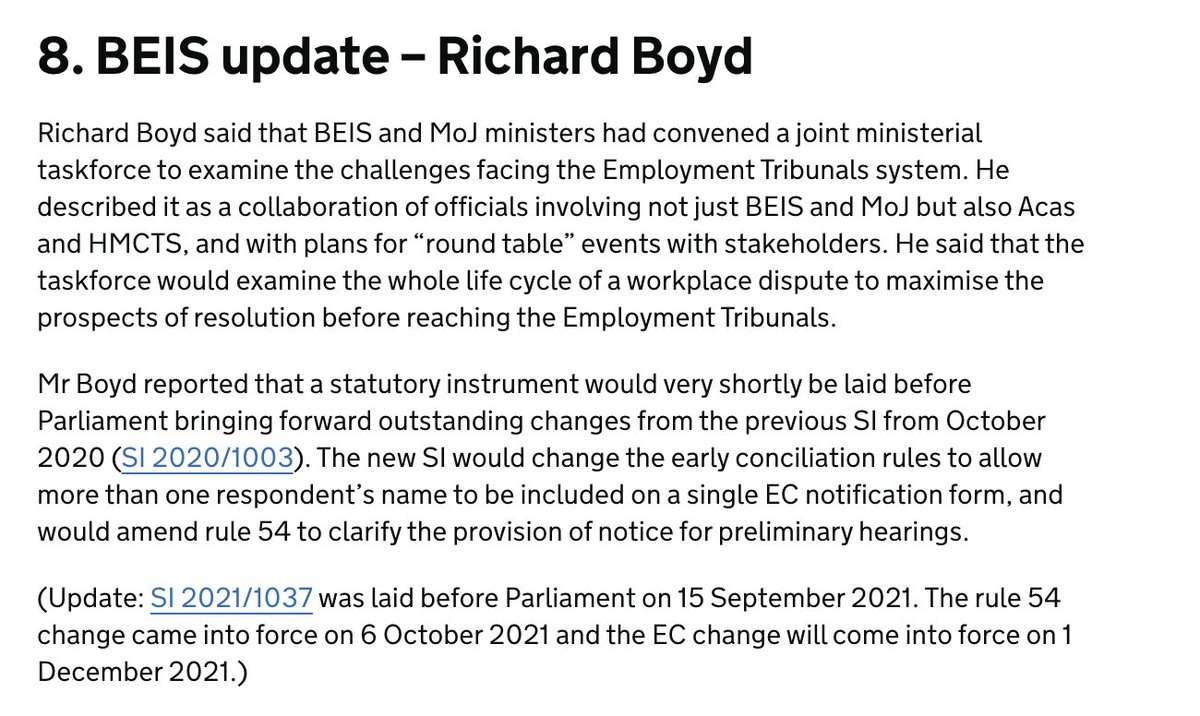National ET Group minutes for September are out, & lots of stuff of interest for #ukemplaw geeks (and others)!
1st up, a list of the newest cohort of EJs. I had the pleasure of appearing before my 1st of them a couple of weeks ago - EJ Dyal was unsurprisingly excellent.
1st up, a list of the newest cohort of EJs. I had the pleasure of appearing before my 1st of them a couple of weeks ago - EJ Dyal was unsurprisingly excellent.

2/ Given the disappointing number of new salaried EJs recruited, efforts are having to be made elsewhere, with a massive fee-paid intake (plus new competition ongoing now) & temporary assignment of 1st tier judges with #ukemplaw experience (some like @reedmj a heck of a lot!) 

3/ Next up, the new addition of legal officers, starting in November & hopefully easing & improving some of our regular frustrations in trying to get swift & carefully considered rulings on case progression issues. 

4/ Then there's the opening of the virtual region to discrimination & whistleblowing cases (albeit only those FPEJs for whom the annoying restrictions of Lawal won't cause a problem). 

5/ The meeting moved on to delays - the timings won't surprise those of us familiar with the vast difference between trying to get a listing in Leeds as against Croydon. Nobody yet listing "routinely" into 2024 - crazy that this is even a possibility in 2021! 

6/ In response to a query, the ET President confirmed his understanding (subject to any disagreement by a Judge in judicial capacity) that ET3s can be submitted online under ET r.85. 

7/ And a really good question from @PamanSingh about how poor the search function is on the ET judgment website (the EAT website is equally bad, I'd note). HMCTS will pass on the criticism to see if functionality can be improved. 

8/ FInally, confirmation of the welcome change to ACAS EC notification which now allows multiple respondents to be inserted on the same form. 

9/ For those wanting a little more #ukemplaw in their Sunday morning, here's the link to the minutes: gov.uk/government/pub…
• • •
Missing some Tweet in this thread? You can try to
force a refresh








